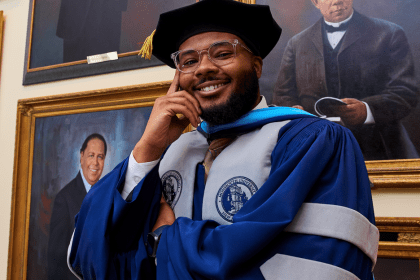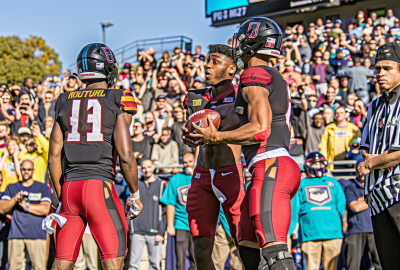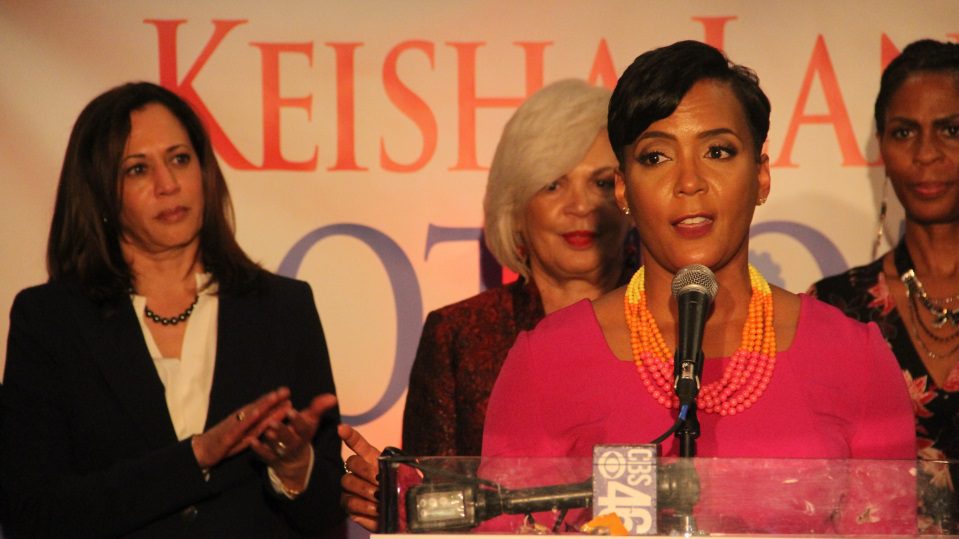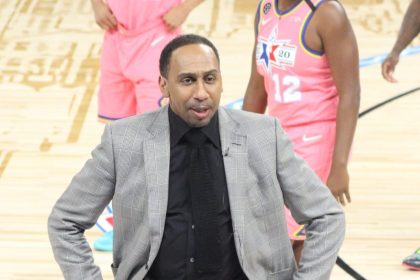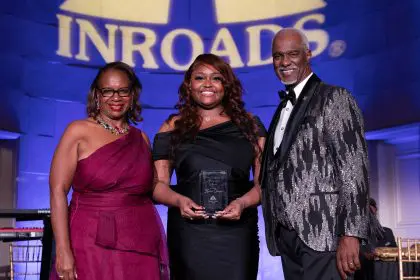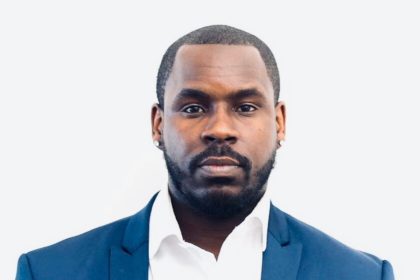-

Dr. Carlton E. Brown, middle, and Dr. Trudie Reed, right, with two other White House-HBCU Initiative Conference Attendees in Washington When the presidents and deans of Historically Black Colleges and Universities begin to tell you about the benefits of obtaining a master’s and other advanced degrees, their individual stories confound you. Their lives have been splashed with rich and vibrant colors that enable them to enter into dimensions that are not open to the vast majority of the populace.
Listen to just a few of them as to the reasons undergraduates should make it part of their educational goals to pursue and complete at least one advanced degree:
Dr. Trudie Kibbe Reed, president, Bethune-Cookman University, Dayton Beach, Fla.: “We know that when you go on to graduate degree programs, you are able to do research that contributes to a better understanding about various disciplines. … And to get there, you really need to go on to a graduate level to understand those levels of data and how to aggregate that information and what meaning does it have to change policy and what it does to produce better scholars and perpetual learners. I’m a lifelong learner, and even though I have many degrees, you never stop learning.”
Dr. Carlton E. Brown, president, Clark Atlanta University, Atlanta: “First of all, everyone should consider getting advanced degrees because the economy of the future will be determined by the education of the population. The better educated the economy, the better the economy, the more focused the economy will be in the future.”
Dr. Everette Freeman, president, Albany State University, Albany, Ga: “[To have a] life of increased revenue, have a life of quality that is in excess of what I could have had otherwise. We try to get our students to focus on the endgame. The endgame is that you are competent to a number of industries and government and the private sector in a way that these students will be able to add value.”
Dr. Jimmy R. Jenkins, president, Livingstone College, Salisbury, N.C.: “[Getting advanced degrees] really helped me because I went back to teach, I became an administrator and I have served over 26 years as a college president. And I know that would not be the case had I not made sure that I was fully qualified for any new opportunities that came along.”
Dr. Valerie Montgomery-Rice, Dean and Executive Vice President, Morehouse School of Medicine, Atlanta: “You know what I tell young people when they ask me how long it [took] to become a doctor? I give them the number of years. But, then I ask them: ‘Well, tell me what you would be doing at 21 if you weren’t getting an advanced degree other than working? Then they want to know about the cost. I say the best investment that I am most sure of is the investment in myself because I understand what the return on the investment is going to be. If I can count on anybody, I can count on me.”


